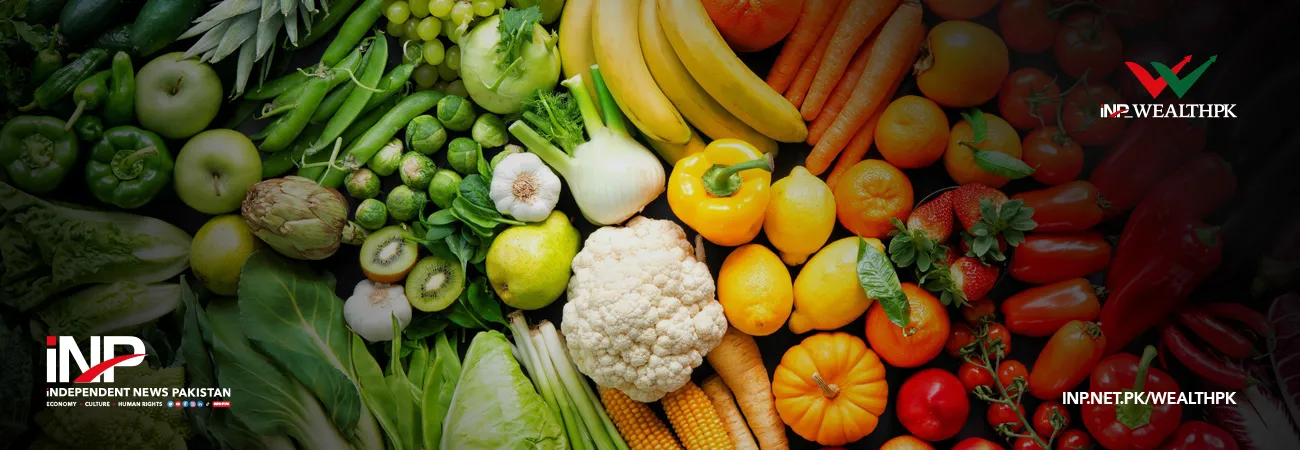INP-WealthPk
Arooj Zulfiqar
Pakistan’s fruit and vegetable sector has faced significant challenges in recent years. Addressing these challenges is essential to

unlocking its export potential and driving sustainable growth in the country’s agricultural economy, said Mr. Nasrullah, Senior Scientific Officer at the National Agricultural Research Council (NARC), while talking to WealthPK. While Pakistan is blessed with a diverse climate suitable for cultivation of various fruits and vegetables, the sector has struggled with inefficiencies limiting its growth. Over 1.126 million metric tons of vegetables worth $430.055 million were exported during the financial year ending June 30, 2024, as compared to 1.336 million metric tons of exports worth $300 million in the corresponding period of the last year. During the July-June 2024 period, the exports grew by 43.20 percent year on year, according to the Pakistan Bureau of Statistics.
Nasrullah said, “One of the most critical issues plaguing the fruit and vegetable sector was the post-harvest losses. About 35% to 40% of the total production is lost. Poor handling, inadequate storage, and suboptimal transportation infrastructure lead to spoilage and reduced quality before the product could reach the markets. Without addressing this issue, export remains underperformed, as international buyers prioritize high-quality, fresh produce.” “Another hurdle is inconsistency in quality and adherence to the international standards. Our fruit and vegetable exports often fail to meet the stringent standards set by key markets like the European Union, the Middle East, and China. This results in rejection of shipments and loss of credibility among global buyers. Without harmonized standards and proper quality control mechanisms, Pakistan will continue to struggle to meet the export demand.
“To address these challenges, it is essential to invest in post-harvest infrastructure, such as modern cold storage and transportation systems, to reduce losses and maintain quality. Adoption of global standards and certifications will ensure compliance with the international market requirements, fostering greater export potential,” the NARC senior scientist said. “Expanding market access through favorable trade agreements and tariff reductions could further boost competitiveness. Moreover, integrating modern agricultural technologies, including drip irrigation and hydroponics, alongside strengthening export-oriented supply chains through the public-private partnerships, will improve efficiency and profitability, driving the sector towards sustainable growth,” he added.
Credit: INP-WealthPk













